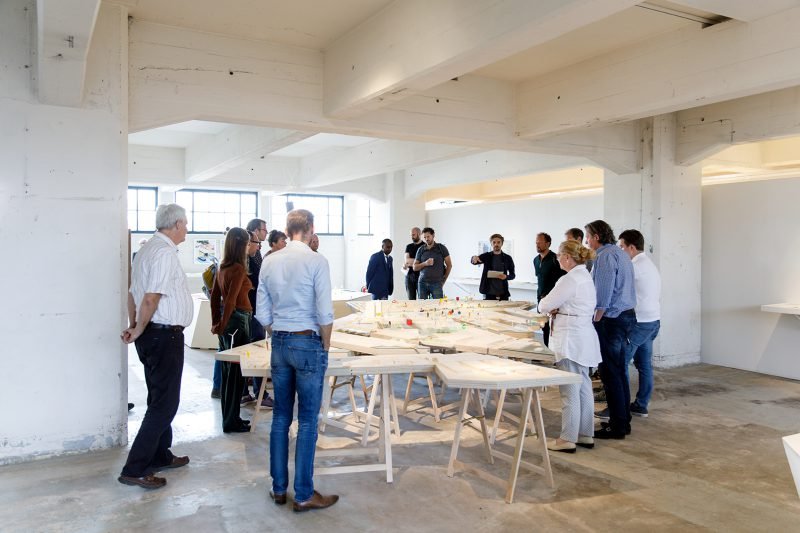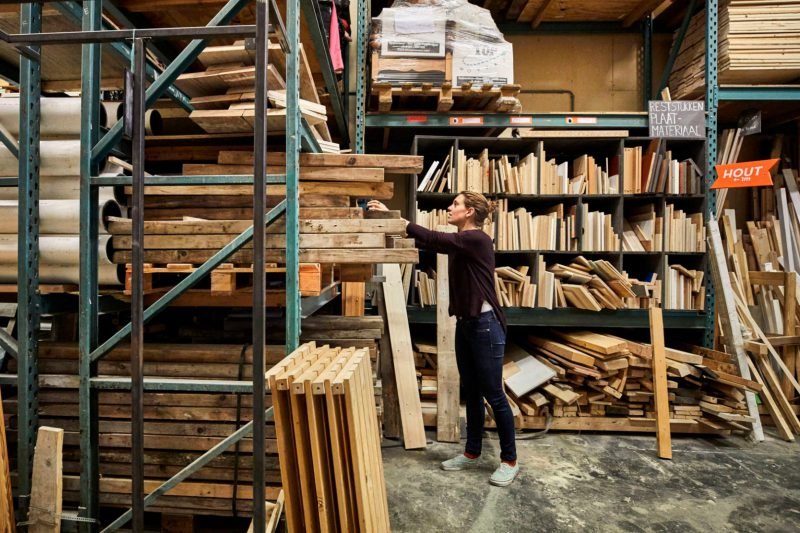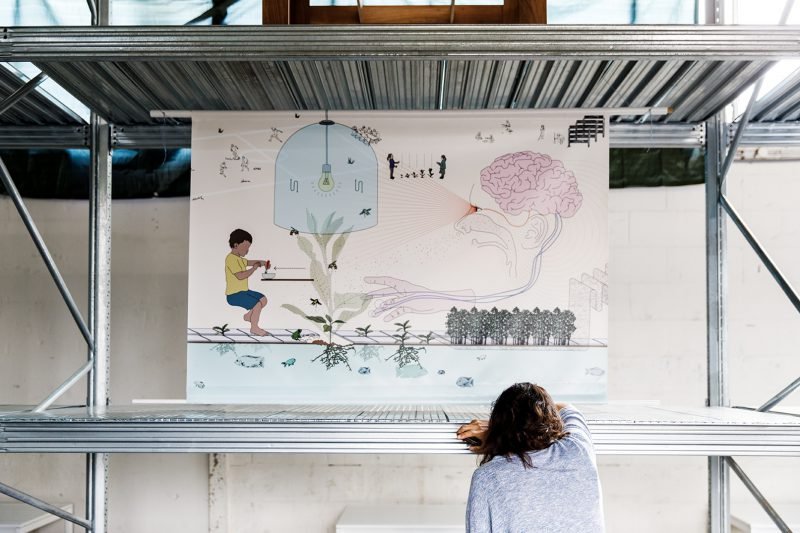IABR 2018 Explores Small Green Ideas That Can Make a Big Change
To reach the climate goals that political leaders agreed on, we all need to make small changes in our everyday behavior. This year's International Architecture Biennale Rotterdam puts into focus local initiatives and suggests actions that everyone can take to make the most of our resources.
This year, the exhibition of the IABR introduces the visitor to a literal rainbow spectrum of things in a so-called Wunderkammer (“chamber of wonders”), where stumble upon a collection of sustainable products from businesses and initiatives that tackle our global problems at a local level. Together, the objects embody the main theme of the biennale — the “missing link” between our everyday lives and global sustainable change.


A major theme within the exhibition is the ever growing amount of plastic waste that is polluting our seas. It shows several concepts and ideas from Dutch designers and architects that give new value to plastic waste. Dave Hakkens, with his open source Precious Plastic project, is building a worldwide community of people that turn plastic into new products. (Check out our interview with Dave for smart magazine.)

Plastic waste can be a great ingredient for new building material, as proven by Overtreders W and Bureau SLA with their their People’s Pavilion. On show at the Dutch Design Week 2017, this temporary building has a facade entirely made of recycled plastic tiles.

Whereas most plastic recycling ideas make recycling an external cause for most households, composting clearly isn’t. Specifically designed for balconies, the Balkonton provides a convenient solution for urban dwellers to combine composting with growing plants. When you feed organic waste, like potato peels to the worms inside the planter, they’ll give back valuable soil. Lacking space for a “worm hotel”? You can also get the sustainable fertilizer Wormenpoep and add it to your herbs and strawberry plants. If you want get active to boost biodiversity and have some buzzing neighbors at the same time, Buginn offers a true bee hotel that provides a home for solitary bees.

You can find all initiatives above and many more to get started with making a change in the Wunderkammer during the IABR exhibition The Missing Link at the HAKA building, Vierhavensstraat 38-42, Rotterdam.



